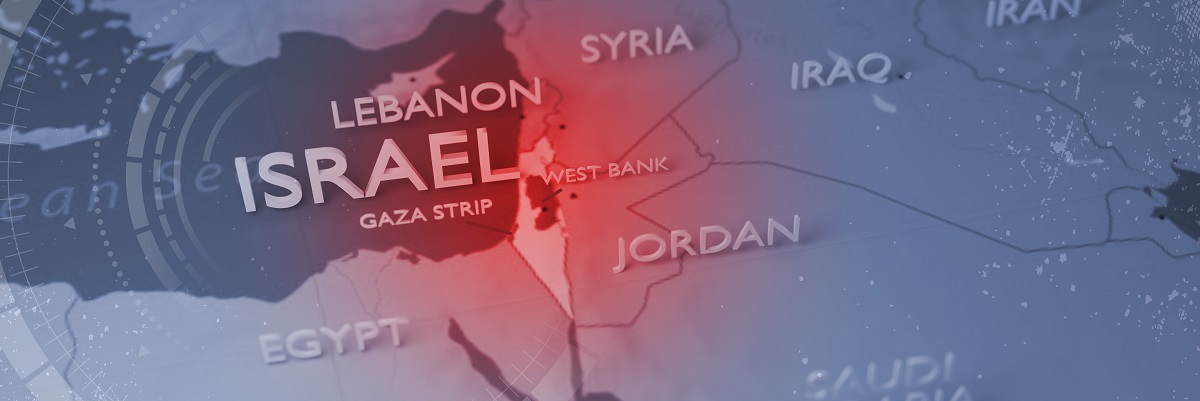Diplomacy
Political Insights (6): Determinants of the Egyptian Stance on Operation al-Aqsa Flood and the Israeli Aggression on Gaza Strip

Image Source : Shutterstock
Subscribe to our weekly newsletters for free
If you want to subscribe to World & New World Newsletter, please enter
your e-mail
Diplomacy

Image Source : Shutterstock
First Published in: Mar.28,2024
May.27, 2024
An opinion poll conducted by the Palestinian Center for Policy and Survey Research (PCPSR), published on 20/3/2024, revealed that only 12% of Palestinians were satisfied with Egypt’s stance during Operation al-Aqsa Flood. The survey results suggest that Egypt’s handling of the situation has weakened its role in the Palestine issue and negatively impacted its image, status and regional role.
The Egyptian stance on Operation al-Aqsa Flood was shaped by various determinants and influencing factors, foremost among them: 1. The desire to uphold Egypt’s pivotal role in the Palestine issue was driven by its significance in bolstering Egypt’s regional standing and fostering ties with the US. Throughout recent decades, Egypt has aimed to monopolize influence in Palestinian affairs, thwarting the rise of Arab or regional competitors. This ambition extends particularly to managing mediation efforts between Palestinian resistance and Israel, as well as facilitating Palestinian reconciliation. 2. The Camp David Accords have yielded significant benefits, fostering advanced political, economic and security relations with Israel. These ties have notably strengthened during the tenure of Egyptian President ‘Abdel Fattah al-Sisi. 3. The security concern revolves around the potential escalation of sympathetic popular movements for Palestinian resistance, in Egypt and the wider Arab region. There’s apprehension about reigniting the Arab Spring and revitalizing the Arab street, fueled by the profound inspiration from Operation al-Aqsa Flood and the belief in altering the status quo by countering the Zionist project. This sentiment is further compounded by escalating anger over Israeli atrocities in Gaza Strip (GS) and a growing discontent with Arab regimes, either due to perceived neglect of their duty towards Palestine or internal governance failures. 4. Concerns about the significant political and security impact of a potential large-scale displacement of Palestinians from GS to Egyptian territory, which could drag Egypt into conflict with Israel, jeopardize the Camp David Accords, and disrupt the stability of Egyptian-Israeli relations. 5. Ideological reservations within the Egyptian government regarding the Islamic orientation of the Palestinian resistance, particularly amid strained relations with the Egyptian Muslim Brothers (MB) movement and broader skepticism towards Islamic movements in the region. There’s a perception that Egyptian and many Arab officials are hesitant about the victory of the Palestinian resistance in Operation al-Aqsa Flood, fearing potential destabilizing effects on Egypt’s internal dynamics and the broader Islamic movement presence in the region. 6. The Egyptian official stance in the Palestinian landscape is characterized by strong alignment with the Palestinian Authority (PA) and its political objectives. Egypt maintains cautious and unfavorable relations with Hamas, showing reservations towards its resistance efforts and its inclination to maintain an independent stance and political autonomy in managing relations with Egypt and other Arab and regional entities. 7. The Egyptian economy has been grappling with a deteriorating economic crisis, marked by the sharp depreciation of the Egyptian pound against the US dollar. This situation prompted urgent foreign intervention to stabilize the economy. Notably, on 23/2/2023, Egypt signed a $35 billion deal with the UAE for the Ras al-Hekma development project. Further assistance came from the European Union, which announced a substantial financial support package for Egypt worth €7.4 billion for 20242027, including $2 billion in emergency funding slated for disbursement in 2024. 8. The geopolitical determinant lies in Egypt’s control over the Rafah crossing, the sole land access point for GS to the outside world. This control has served as a potent pressure tool on both Gaza’s resistance factions and its populace, contributing to the tightening of the GS siege since 2007. During Operation al-Aqsa Flood, this control exacerbated accusations against Egypt, alleging complicity in the siege, exacerbating suffering and scarcity, while Israeli aggression targets the GS population and resistance.
By observing Egypt’s actions in handling Operation al-Aqsa Flood, the following facets emerge: 1. Politically, Egypt adhered to the resolutions set forth in the joint Arab and Islamic summit held in Riyadh on 11/11/2023, advocating for an end to Israeli aggression against GS and the facilitation of aid entry, although without specified follow-up mechanisms for implementation. 2. Egypt enforced the closure of the Rafah crossing and aligned with Israel’s stance opposing aid flow to GS, despite the crossing being under Egyptian-Palestinian jurisdiction, and the Israeli side has no authority over it. This marked a direct challenge to Egyptian sovereignty, as practical control over the crossing shifted to Israel, granting it sole authority over individual movement and aid entry. Egypt is increasingly apprehensive about the US decision to establish a seaport for Gaza aid, fearing it may diminish Egypt’s influence and control over aid entry via the Rafah crossing. 3. Egyptian authorities pressured Palestinian resistance movements to concede on prisoner exchange deals with Israel, pushing for exclusive Egyptian mediation while attempting to sideline competing mediation efforts, especially the Qatari mediation. Despite Egypt’s desire to monopolize the mediation, Qatar successfully entered the fray, becoming a favored mediator by the United States. 4. Egypt has actively opposed Israeli plans to displace GS residents to Egyptian territory, reinforcing security measures at the Rafah crossing. Diaa Rashwan, the chairperson of the Egyptian State Information Service stated, on 16/2/2024, that such displacement constitutes “a direct threat to Egyptian sovereignty and national security.” 5. During the initial days, Egyptian authorities permitted certain popular events condemning the Israeli war on GS. However, they subsequently enforced stringent measures to curb public protests sympathetic to the Palestinians, leading to a noticeable silence on the Egyptian streets. This repression contrasts with past instances where the Egyptian public reacted to lesser events in Palestinian affairs.
Operation al-Aqsa Flood’s political and field developments have cast a negative impact on Egypt’s role in the Palestine issue and its regional standing. Accusations have surfaced regarding Egypt’s cooperation with Israel in tightening the GS siege. There’s little indication of a significant shift in Egypt’s stance or political strategies regarding the ongoing war. Politically, Egypt is likely to maintain its adherence to the established official Arab and Islamic stance, over which it holds significant influence in shaping. It’s anticipated that Egypt will persist with its current policies regarding the closure of the Rafah crossing and tying aid entry to Israeli approval. Regarding its engagement with Palestinian resistance groups, particularly with Hamas and the Islamic Jihad (PIJ), Egyptian authorities are expected to maintain a cautious and conservative stance. There’s little anticipation for a positive shift in Egypt’s position regarding permitting pro-resistance public events or condemning Israeli aggression against GS.
First published in :

A Jordanian journalist and author of Palestinian origin, editor-in-chief of Assabeel newspaper, and an expert in Palestinian and Jordanian political and strategic affairs. He has published dozens of articles, political analyses, situation assessments and papers, in addition, he is frequently hosted by TV and radio channels. He also participates in many of al-Zaytouna Centre’s activities, and contributes in writing strategic assessments.
Unlock articles by signing up or logging in.
Become a member for unrestricted reading!